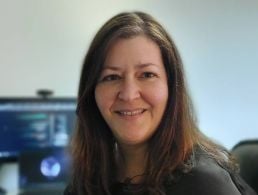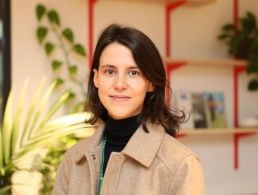This year’s reboot of the Ghostbusters franchise has finally made its way to our screens, featuring for the first time an all-female team of scientists (and paranormal investigators).
To coincide with the release of the new Ghostbusters, we reached out to some real-life female scientists and researchers currently working in Ireland.
Ruth Freeman, director of strategy and communication at Science Foundation Ireland (SFI), has hung up her lab coat, but kept her toes in the research arena. She tells us how her career developed from researcher to SFI director.
What first stirred your interest in a career in this area?
I’ve always been interested in understanding the world and people around me, so, from that point of view, science was a natural fit. I was really inspired from a very young age by David Attenborough’s television programmes showing the amazing wonders of the natural world.
What led you to the role you now have?
I studied genetics and statistics at Trinity College Dublin (TCD) and moved from a research role there to SFI. I’ve fulfilled a range of different roles here at the Foundation, and have progressed from being a programme manager to my current role as a director and member of the executive committee.
There has been a lot of learning on the job, supplemented by training in leadership, financial management and project management. My scientific training has given me a suite of analytical skills that I employ on a daily basis, even though I’m no longer a bench scientist.
What were the biggest surprises or challenges you encountered on your career path?
I’m not a huge fan of surprises and try and avoid them. I prefer to be on top of the situation. Having said that, if you had told me a decade ago that I would be in this role, I probably wouldn’t have believed you, so in some ways it is a surprise to be here.
The most challenging task I’ve undertaken so far was probably leading the programmes team in the Foundation during the establishment of the first SFI research centres. It was a large and complex investment, and we had to make sure we were constantly thinking ahead to the next potential issue before it arose.
Was there any one person who was particularly influential as your career developed?
It would be really difficult to pick out one person; I have really supportive family and friends, who probably have unjustified confidence in me. My mum studied and completed her PhD with three young children, so she’s a great role model for hard work and dedication.
What do you enjoy about your job?
I get to have visibility of new and exciting scientific and engineering research, which I enjoy hugely, and it’s a real privilege to interact with some of the amazingly talented researchers that are supported by Science Foundation Ireland, as well as the international research leaders that review our programmes.
No two days are exactly the same, and I like having new challenges.
What aspects of your personality do you feel make you suited to this job?
Hopefully I’m adaptable, which I think is essential in the modern workforce. I’m also really passionate about the importance of science and research for Ireland and the world. I believe that robust, well-executed, well-debated, transparent research is one of the elements of a properly-functioning democracy, so it is easy for me to support that message. I like working in teams – science and science funding are hugely collaborative endeavours, so that is an important attribute.
How did SFI support you on your career path?
I’ve been given plenty of opportunities to progress with Science Foundation Ireland – and I’ve grabbed all of them with both hands! I’ve recently returned from maternity leave after having my second child, and it is great to be able to work flexibly.
What advice would you give to those considering a career in this area, or just starting out in one?
I think that training in science, technology, engineering or maths gives a great grounding for a range of careers. A potential downside is that the career path for a researcher might not be as obvious as, say, a solicitor or a doctor. So you need to take control of your own destiny and understand that most researchers don’t stay in academic institutions.
The upside is the huge variety of careers available. Lots of companies and organisations offer internships – these are a great way to see if the career is a good fit.
Looking for jobs in tech or science? Check out our Featured Employers section for information on companies hiring right now.




